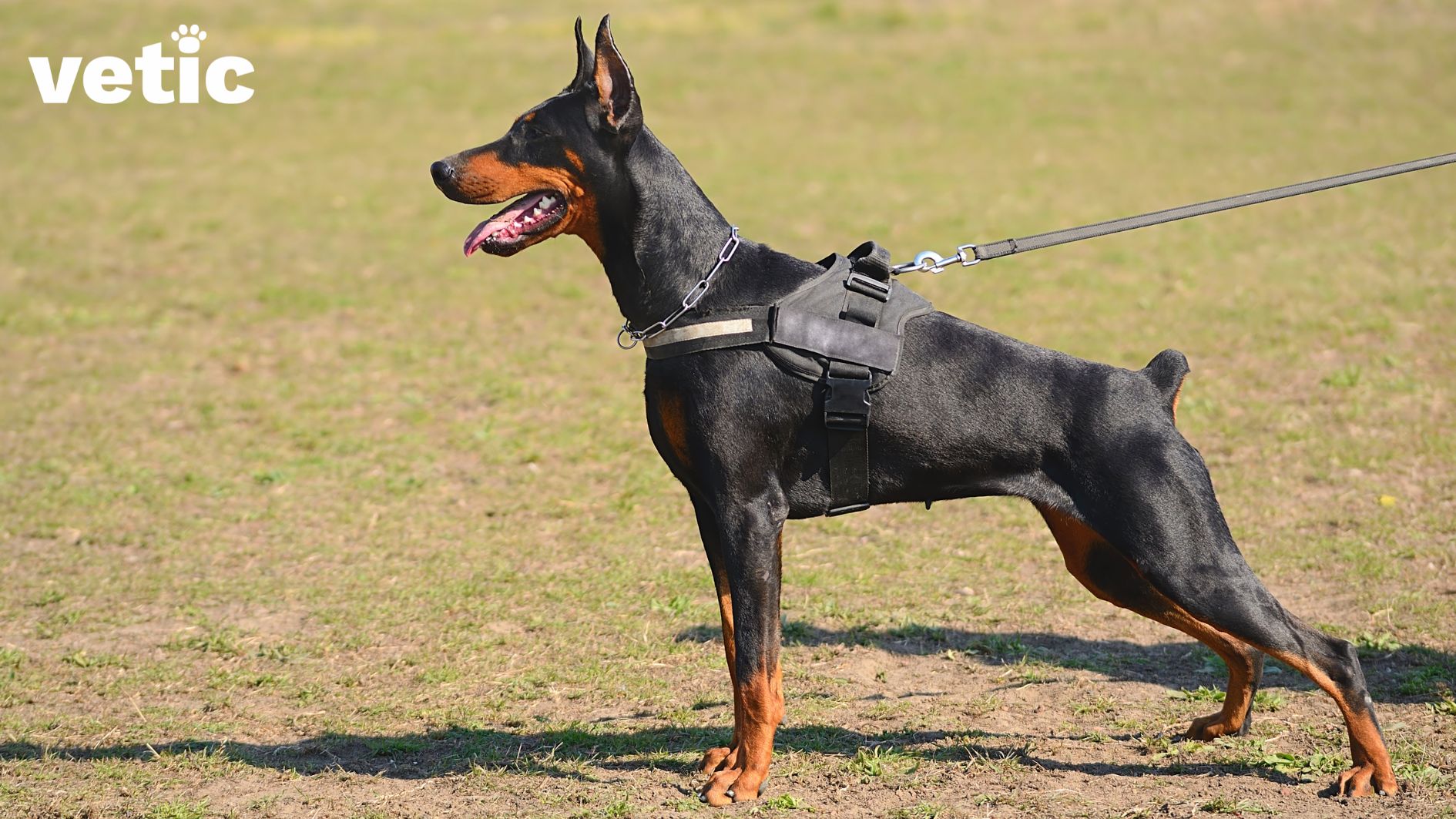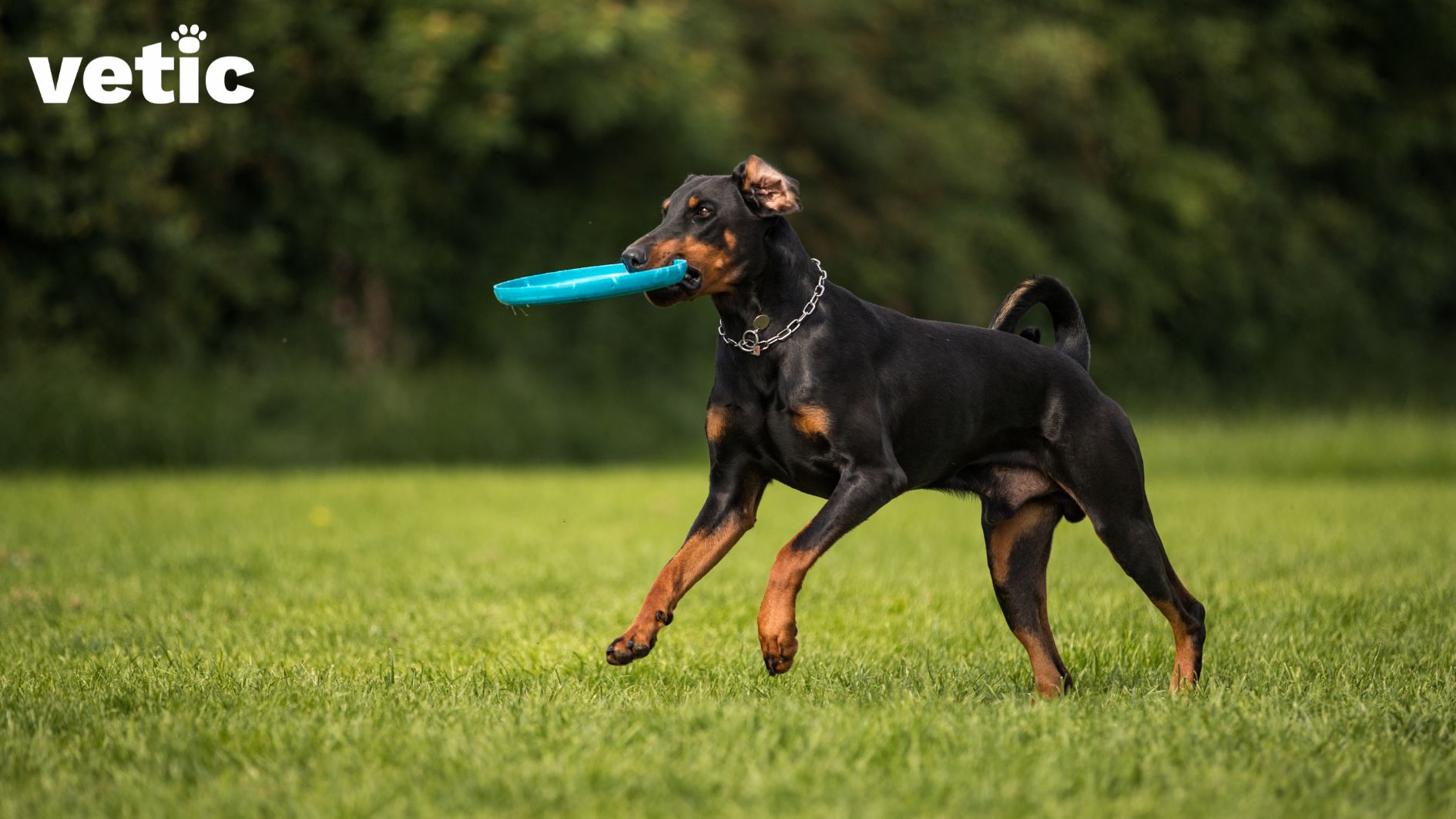Are Dobermans scary? Are Doberman breed dogs aggressive? Are they always aggressive and hyper? Can Dobermans be good family dogs?
Let’s find out all about the Doberman breed!
The Doberman, often referred to as the “gentle giant,” is a breed with a fascinating history. Originating in Germany during the late 19th century, they were initially bred by a tax collector named Louis Dobermann. His goal was to create a versatile and protective dog breed, and the result is the Doberman we know today.
In this article, you will find insights into the unique traits, care requirements, and reasons why the Doberman can make an exceptional pet.
10 Unique Personality Traits of the Doberman
Loyal Guardians: Dobermans are renowned for their unwavering loyalty to their owners. They form strong bonds and will go to great lengths to protect their loved ones.
Intelligence: These dogs are exceptionally intelligent, ranking among the smartest breeds. This trait makes them quick learners and excellent problem solvers.
Fearless Protectors: Known for their bravery, Dobermans excel as guard dogs. Their imposing presence alone can deter potential intruders.
Energetic Athletes: Dobermans possess high energy levels, making them ideal companions for active individuals or families who enjoy outdoor activities.

Elegant Appearance: With their sleek, muscular bodies and distinctive cropped ears, Dobermans have an elegant and regal appearance that commands attention.
Velcro Dogs: Dobermans tend to form a strong attachment to their owners and often become “velcro dogs,” following them around and seeking constant companionship.
Sensitivity: Despite their imposing exterior, Dobermans are sensitive souls. They respond well to positive reinforcement training methods and thrive on praise and affection.
Social Nature: These dogs are typically sociable and enjoy the company of other dogs and people when properly socialised from an early age.
Low Grooming Needs: Dobermans have short coats that require minimal grooming. Regular brushing and occasional baths are usually sufficient.
Healthy Lifespan: With proper care, Dobermans can live relatively long and healthy lives, often reaching 10 to 12 years.
Dobermans in Hollywood!
Dobermans have made notable appearances in various films and TV shows.
One iconic example is the portrayal of “Max,” a Doberman, in the 1989 film “K-9.”
Max played the role of a police dog and displayed the breed’s intelligence, loyalty, and courage, leaving a lasting impression on audiences.
Unique Traits and Care Considerations Before Adopting a Doberman

- Energy Level: Dobermans have high energy levels that require regular exercise. The problem arises when this need isn’t met, leading to restlessness and potentially destructive behaviour. To solve this, provide daily vigorous exercise and engage them in mentally stimulating activities.
- Playfulness: Dobermans maintain a playful demeanour throughout their lives. However, if their need for playtime isn’t met, they may become bored and engage in undesirable behaviour. Ensure they have toys and interactive play sessions to keep them mentally engaged and entertained.
- Trainability: While Dobermans are highly trainable, their intelligence can sometimes lead to stubbornness. The problem emerges when they sense inconsistency or harsh training methods. The solution is to use positive reinforcement techniques, offer plenty of rewards, and maintain a consistent training routine.
- Behaviour Towards Other Dogs: Early socialisation is crucial to ensure that Dobermans exhibit appropriate behaviour towards other dogs. The problem may arise when they are not properly socialised, leading to fear or aggression. The solution is consistent exposure to other dogs, controlled introductions, and positive reinforcement for good behaviour.
- Ideal Diet: Dobermans may be prone to certain dietary sensitivities or allergies. The problem is digestive discomfort and potential skin issues. The solution is to consult with a veterinarian to determine an ideal diet tailored to your dog’s specific needs.
- Exercise Needs: The problem with inadequate exercise is pent-up energy, which can result in behavioural problems. The solution is to provide daily physical activity, including brisk walks, runs, or agility training, to keep them mentally and physically stimulated.
- Common Health Problems: Dobermans are susceptible to certain health issues, including heart problems and hip dysplasia. The problem is the risk of serious health complications. Regular veterinary check-ups and a healthy diet can help prevent or manage these issues effectively.
Are You The Ideal Doberman Parent?
In conclusion, Dobermans are remarkable companions for those who –
- Seek a loyal and protective four-legged family member.
- Can provide the necessary exercise and mental stimulation to keep them happy.
- Are committed to positive reinforcement training methods.
- Desire an elegant and low-maintenance breed.
- Understand and are willing to address potential health concerns proactively.
If you fit this profile and are ready for the responsibilities of owning a Doberman, you’ll find a devoted and loyal friend who will stand by your side through thick and thin.
The Doberman’s unique combination of intelligence, loyalty, and protective instincts make them an excellent choice for the right owner.

